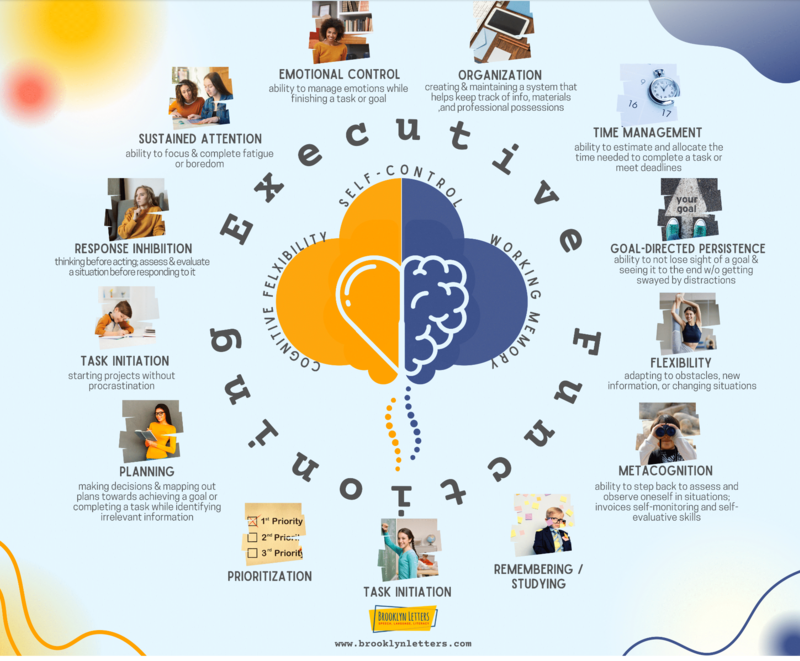Jennie J. Jones’s Updates
Update 1: Chocolate Covered Broccoli: Game Design in Education to Improve Executive Function
More often than I would like to admit, I have had parent conferences where a parent is typically beyond frustrated with her child. Many times the conversation will turn to his or her inability to finish work, organize their folders and bookbags, and retain attention long enough to understand what to do for projects at school. Miraculously, this same student can focus for hours on World of Warcraft, for example, and demostrate deep and complex knowledge of the mythos and functional peramters of the game. Parents are usually stumped.
I know about this sort of deficit in the ability to organize, prioritize, plan, and follow through with my tasks as a teacher and a student with ADHD. Certainly, there are many students who struggle with these tasks as neurotypical students, but those with Attention Deficit Hyperactivity Disorder have a particularly difficult time with skills related to executive functioning. Emily Culp describes EF in this way, "(EF) encompasses a set of mental skills that cut across disciplines, like prioritizing, organizing, task initiation, working memory, and goal-directed persistence"(Culp, 2022). When playing these video games, it seems as if the student has no problem with executive functioning. In fact, it seems as if the student is merely "lazy" about their schoolwork and priorities.
Within the world of video games, both neurotypical and neurodivergent students experience that which is novel and personally interesting. They are given the chance to participate in active learning which encompasses "experiencing the world in new ways, forming new affiliations [with other players], and preparation for future learning"(Gee, 2007, p. 24). More than this, video games go further into critical leaning as well where the learner "needs to learn how to think about the [game] domain at a 'meta' level as a complex system of interrelated parts"(Gee, 2007, p.25). No wonder students are so fascinated with the complex and unique world of video games.
Because of the deep learning that video games can produce in these multi-faceted, multi-modal experiences, I gravitate to the learning design that is typically a part of these gaming worlds, most especially as it might relate to game studies in curriculum design. Is it possible to engage and motivate students while creating a meaningful learning experience for all students, even those who struggle significantly with ADHD? Have teachers or game designers been successful in implementing game design strategies in their classrooms with positive educational results? According to some experts, introducing gamification in the classroom can be a sticky wicket because" by layering game-design content upon serious activities, the gaming element becomes a separate reward of sugar-coating for the user to derive engagement, rather than the core game mechanics"(Habgood and Ainsworth, 2011, p.5). Consequently, it is a difficult prospect for teachers to create the fun of gaming, while effectively teaching students to be proficient at the standards, which is the ultimate goal of each lesson. Students should be participating in quality multi-modal, cooperative, meaning-making activities, but do games add or detract from that goal? Do teachers need to be experts at cognitive science in order to effetively incorporate gamification in their classrooms?
References:
Culp, E. (2022). Using Games to Help Students Develop Executive Function Skills. Edutopia. https://www.edutopia.org/article/using-games-help-students-develop-executive-function-skills
Gee, J. C. (2007). What Video Games Have to Teach Us About Learning and Literacy. Second Edition: Revised and Updated Edition. https://eric.ed.gov/?id=ED512742
Habgood, M. P. J., & Ainsworth, S. (2011). Motivating Children to Learn Effectively: Exploring the Value of Intrinsic Integration in Educational Games. The Journal of the Learning Sciences, 20(2), 169–206. https://doi.org/10.1080/10508406.2010.508029



The captivating storyline of escape road city 2 immerses you in its world, where your choices significantly impact the outcome of your adventure and the fate of the city.
The Slope Gaming Community slope has a dedicated community of players who enjoy sharing tips, strategies, and high scores. Some even create challenges, such as speedruns or specific movement restrictions, to test their skills in new ways. The competitive aspect of the game keeps the community active and engaged.
I am captivated by the narrative it conveys and am eager to delve deeper into its depths.
wave road
Thanks for your instruction. Besides, I would like to introduce slope game which is an awesome video game.
@Jennie,
There are so many questions to ask when considering adding a gaming aspect to a curriculum such as is it truly worth the time-investment or not in the long run. Will the students just take the gaming portion of the activity as entertainment and not even try to allow the goal of learning the content of a curriculum to be taken seriously? Can game-based learning curriculum be easily designed to be effective, or will it take more time/effort to design these game-based activities within the curriculum than anticipated (and where does a teacher find that extra time)? I look forward to discovering some answers to similar questions as I read your future updates!
Sandra
That is the sticky wicket about game-based learning versus gamification, isn't it? Since gamification is easily layered onto the developed curriculum, it is certainly more time efficient to add a game of Kahoot! in the classroom, for instance. But Kahoot! is often just a game focused on memorization or recall. It has no true depth or complexity. Game-based learning sure would be able to access meaning-making, cooperation, teamwork, and critical thinking in say, escape room challenges based on American history events etc., but one would have to really understand how to design a game properly to ensure both the fun and learning of game play. The folks at World of Warcraft seem to have that nailed. Of course, there is always the time factor involved for teachers, but I wonder if educational gaming companies could do that heavy lifting.
Thank you so much for all your insightful questions.